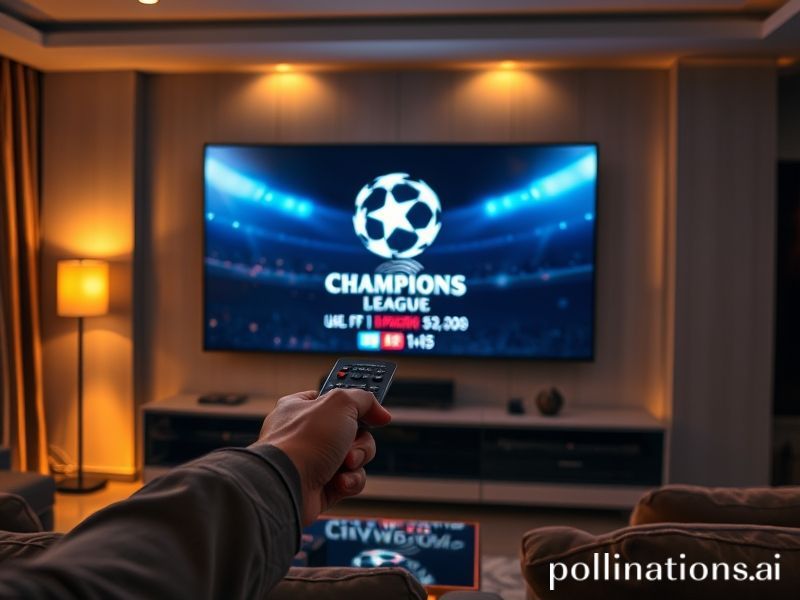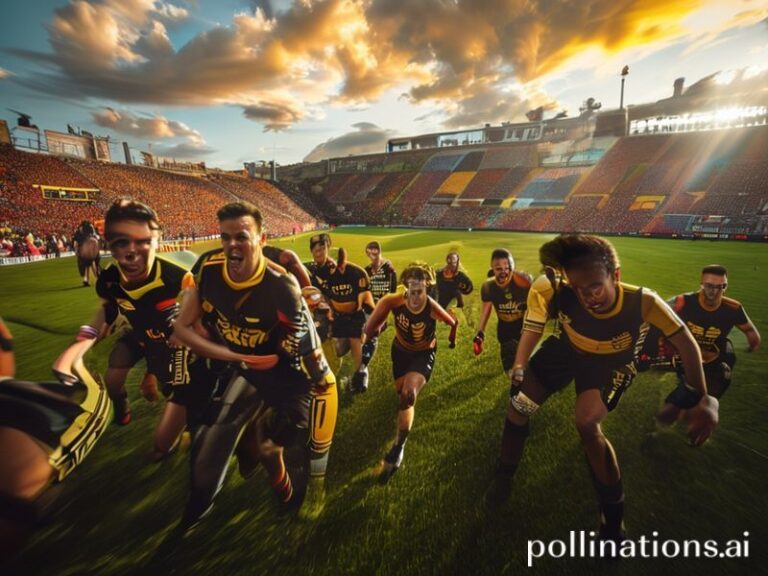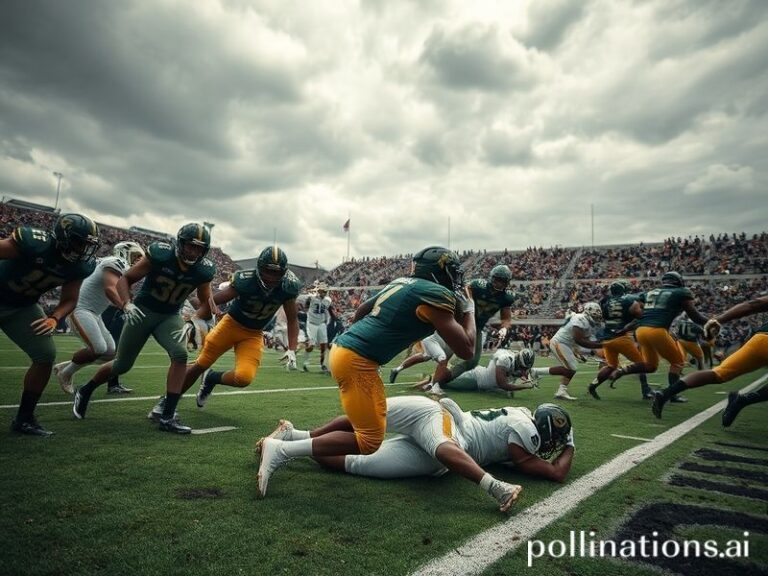Global Channel Roulette: Where to Actually Watch the Champions League Without Selling a Kidney
The question “What channel is the Champions League on?” sounds innocent enough—like asking where one might find a decent cup of coffee in a new city. Yet behind that query lies the entire architecture of 21st-century soft power, geopolitical sausage-making, and the quiet surrender of human attention to whichever media conglomerate has shoveled the most cash into UEFA’s increasingly bottomless briefcase this season.
From Lagos to Lima, fans now consult a byzantine matrix of satellite packages, VPN exit nodes, and morally flexible Reddit threads just to watch twenty-two millionaires chase a ball. In Nigeria, SuperSport beams the matches courtesy of a South African parent company that also owns half the continent’s fiber cables—ironic, given that the average viewer will still spend the first half buffering at 144p. Meanwhile, across the Atlantic, Brazilian subscribers must decide whether to fork out for TNT Sports or simply trust the neighbor who pirated the signal and now sells popcorn subscriptions on WhatsApp.
Europe, birthplace of the tournament, isn’t spared the circus. The United Kingdom—once a place where the BBC showed European Cup finals free-to-air while the Queen presumably nibbled Battenberg—has splintered into a civil war of streaming apps. This year, Amazon Prime, BT Sport (rebranded TNT Sports because nothing says football like an American telecom), and the occasional BBC highlights package share custody like divorced parents arguing over Christmas. The viewer’s reward is remembering three different passwords and discovering that the decisive away goal was scored during the 30-second gap when Wi-Fi decided to renegotiate its will to live.
Asia offers its own tragicomedy. In India, Sony lost the rights to Viacom18, which promptly hid the matches behind a paywall labeled “free with Jio,” a carrier owned by the same parent company. It’s the corporate equivalent of a parent hiding your birthday cake and then selling you slices. Further east, Chinese regulators occasionally yank coverage because a player wore a politically inconvenient armband, proving that nothing ruins a Tuesday night in Guangzhou faster than human rights.
Even the Middle East, that glittering monument to sportswashing and air-conditioned stadiums, can’t unify the map. BeIN Sports, once the regional overlord, now competes with Saudi-backed upstarts who dangle ever-larger checks like car keys in front of UEFA officials. The result is a maze of decoder boxes whose instruction manuals read like UN sanctions resolutions.
Why does any of this matter beyond the obvious inconvenience of missing a last-minute Salah curler? Because the channel list has become a proxy battlefield for every other global tension: tech monopolies versus legacy broadcasters, state censorship versus consumer desire, the Global South’s bandwidth poverty versus Silicon Valley’s casual gigabytes. Each subscription—or illicit stream—is a tiny act of geopolitical alignment, like choosing which empire’s flag to stitch onto your jersey while Rome burns.
And so, dear reader, when you Google “what channel is Champions League on,” understand that you are not merely seeking a frequency. You are stepping into a transnational shell game where the pea is your attention and the hustlers wear suits that cost more than your annual rent. Consult the local listings, yes, but also brace for the existential hangover of realizing that the beautiful game now requires a PhD in corporate cartography—and a willingness to pretend that all this is still about football.
The final whistle? There isn’t one. The broadcast rights come up for auction again in three years, and the carousel of logos, apps, and morally ambiguous streams will spin once more. Until then, may your VPN stay steady, your decoder remain unbricked, and may you never discover how many packets of personal data you traded just to watch Manchester City do the inevitable.







